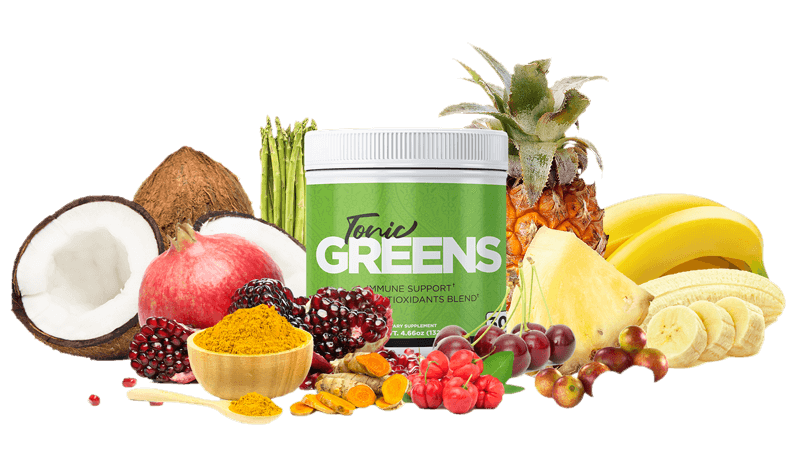As we age, our immune system naturally becomes less effective, making us more vulnerable to illnesses and infections. However, with the right strategies, you can support your immune system and maintain a healthy lifestyle well into your later years. Here are essential tips to help you strengthen your immunity after 50.
Why Immune Health Matters as You Age
After 50, maintaining a robust immune system is crucial. Aging affects our body’s ability to respond to infections, so it’s essential to adopt habits that keep our immune system strong. From diet adjustments to lifestyle changes, these strategies can help boost your immune resilience.
1. Prioritize a Balanced, Nutrient-Rich Diet
A balanced diet rich in vitamins, minerals, and antioxidants is the foundation of a healthy immune system. Nutrients like Vitamin C, D, zinc, and selenium play critical roles in immunity.
- Foods to Include: Leafy greens, citrus fruits, lean proteins, and whole grains are packed with essential nutrients.
- Tip: Consider incorporating fermented foods like yogurt and sauerkraut, as they contain probiotics that support gut health, which is closely linked to immune function.
2. Stay Physically Active
Regular physical activity can have a profound impact on immunity. Exercise improves circulation, which helps immune cells move through the body more effectively.
- Recommended Activity: Aim for 150 minutes of moderate-intensity exercise per week, such as walking, swimming, or light aerobics.
- How It Helps: Physical activity reduces inflammation and supports the function of infection-fighting white blood cells.
3. Get Adequate Sleep
Sleep is essential for immune health, as it allows the body to repair and regenerate. Poor sleep weakens the immune response, increasing vulnerability to illness.
- Sleep Goal: Adults over 50 should aim for 7-8 hours of quality sleep each night.
- Tips for Better Sleep: Create a sleep routine, avoid screen time before bed, and consider relaxation techniques like deep breathing or reading.
4. Manage Stress Levels
Chronic stress can weaken immune defenses by releasing cortisol, which, over time, can suppress immune function. Learning to manage stress is key to maintaining immunity.
- Stress-Relief Techniques: Meditation, deep breathing, and hobbies like gardening or painting can help reduce stress.
- Why It Works: Lower stress levels support a stronger immune response and can improve overall well-being.
5. Stay Hydrated
Hydration is crucial for immune function as it supports the circulation of immune cells throughout the body. Even mild dehydration can affect your body’s ability to fight off infection.
- Daily Hydration: Aim for around 8 cups (64 oz) of water per day, though individual needs vary.
- Tip: If plain water feels monotonous, try adding lemon slices or drinking herbal teas to stay hydrated.
6. Avoid Smoking and Limit Alcohol Intake
Smoking and excessive alcohol consumption weaken the immune system and increase the risk of infections. Quitting smoking and drinking in moderation can significantly benefit immune health.
- Why Quit Smoking? Smoking damages the respiratory system, leaving it more susceptible to respiratory infections.
- Moderate Alcohol: Limiting intake to 1 drink per day for women and 2 for men can help protect your immune health.
7. Consider Immune-Boosting Supplements
While a balanced diet is the best way to get nutrients, certain supplements may be beneficial for those over 50 to support immunity.
- Recommended Supplements: Vitamin D, Vitamin C, Zinc, and probiotics can help strengthen the immune system.
- Tip: Always consult your doctor before starting new supplements, especially if you’re on medication.
8. Get Regular Health Screenings
Regular check-ups and screenings help identify potential health issues before they become severe. Conditions like high blood pressure or diabetes can weaken immunity, so staying on top of your health is essential.
- Screening Benefits: Regular screenings can catch and treat health issues early, reducing the toll on your immune system.
- Frequency: Consult with your healthcare provider for a schedule tailored to your health needs.
9. Foster Social Connections
Maintaining a strong social network has been shown to have positive effects on immunity. Social isolation can lead to stress and depression, which negatively impact immune health.
- How to Stay Connected: Engage in community activities, hobbies, or regular check-ins with friends and family.
- Benefit: Staying socially active can improve mood and support overall health, including immune function.
10. Protect Yourself from Infections
As we age, we become more susceptible to infections. Simple practices like washing hands frequently and staying updated on vaccinations are crucial for maintaining immune health.
- Vaccinations: Annual flu shots and other recommended vaccines help protect against illnesses that could strain your immune system.
- Hand Hygiene: Regular handwashing, especially after being in public spaces, can reduce exposure to pathogens.
Embrace a Holistic Approach to Immune Health
Supporting your immune system after 50 involves a holistic approach, from diet and exercise to stress management and social connections. By incorporating these strategies, you can promote a healthy immune response and enjoy a more vibrant life.
Looking for additional immune support? Consider adding a high-quality supplement like TonicGreens to your routine. Packed with immune-boosting ingredients, TonicGreens provides that extra layer of protection your body needs. Try it today and take a proactive step toward immune health!
TODAY’S DEAL
Revitalize your health with Tonic Greens!
Transform your health routine! Buy Tonic Greens and take the first step towards a healthier life!
learn more























